Normal Punctuation Worksheets for Ages 3-7
8 filtered results
-
From - To
Explore our "Normal Punctuation Worksheets for Ages 3-7," designed to introduce young learners to the basics of punctuation in a fun and engaging way! These worksheets help children understand the importance of punctuation marks like periods, commas, question marks, and exclamation points. With colorful illustrations and age-appropriate exercises, children will learn how to use punctuation to enhance their writing skills. Perfect for classroom use or at-home learning, our printable activities promote creativity, comprehension, and critical thinking. Watch your child's confidence grow as they master punctuation and express their ideas clearly! Download your worksheets today and unleash the writer in your child!
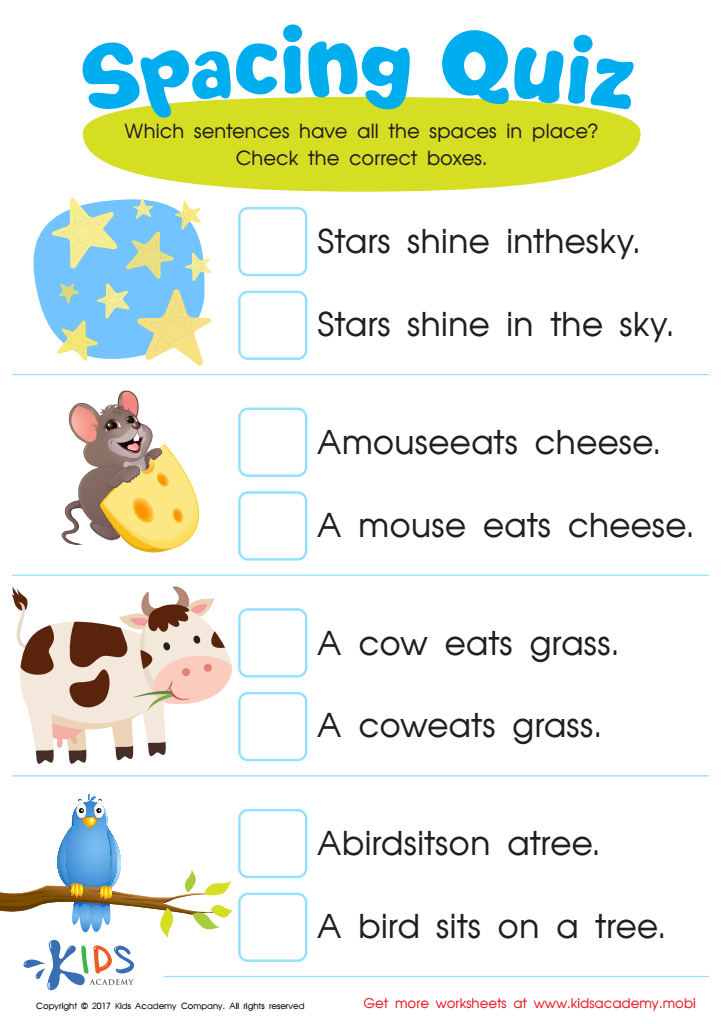

Spacing Quiz Worksheet
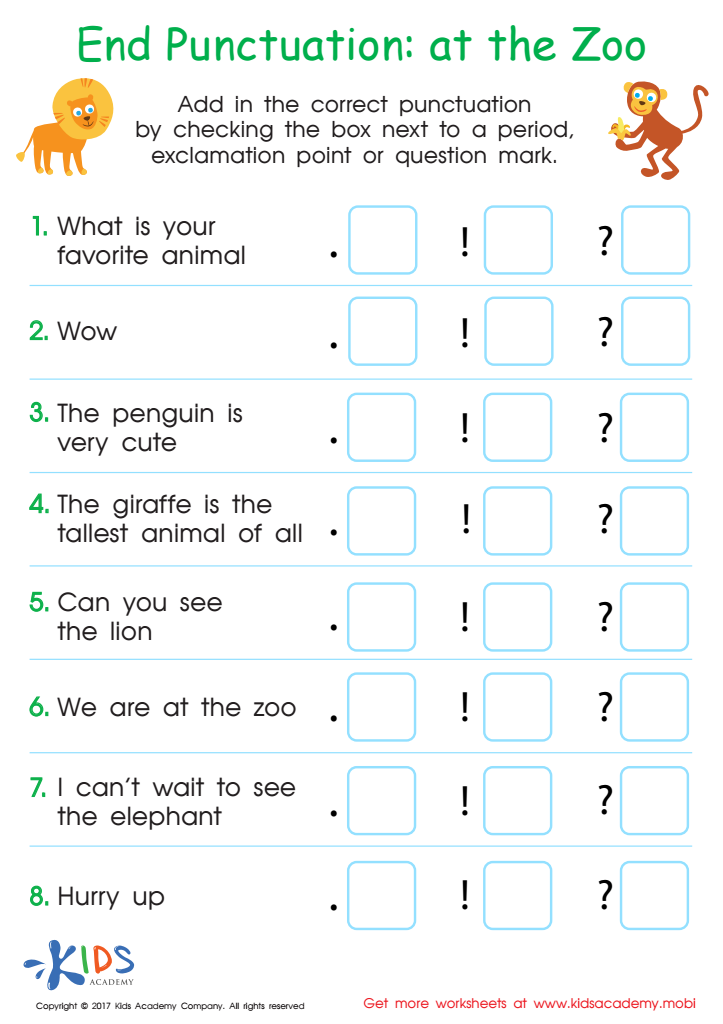

End Punctuation: At the Zoo Worksheet
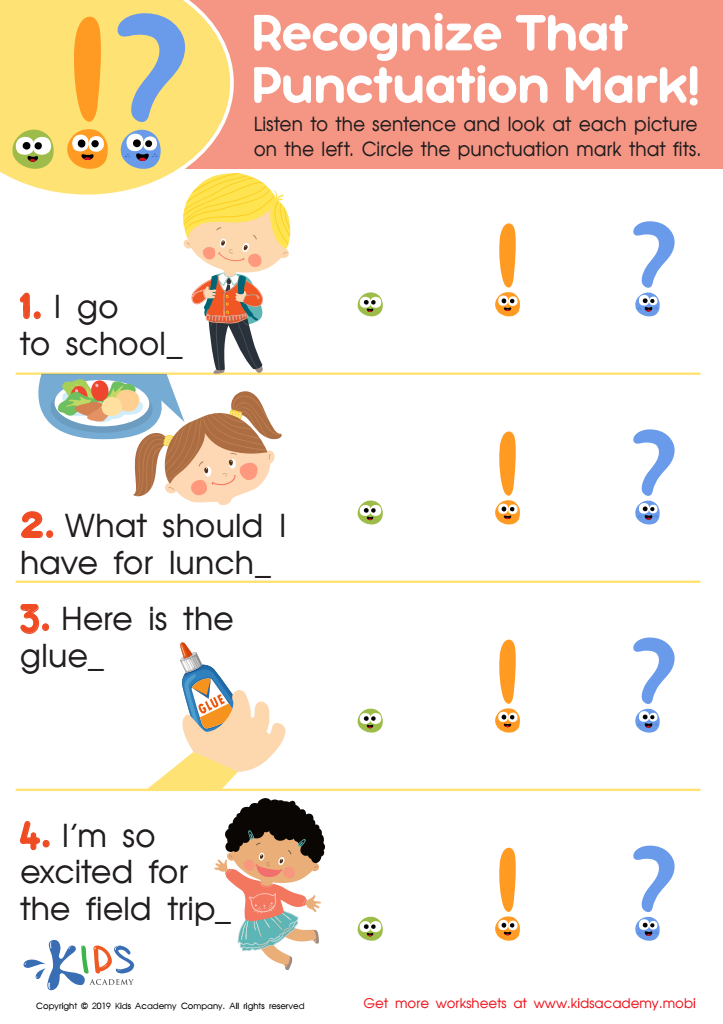

Recognize Punctuation Marks Worksheet
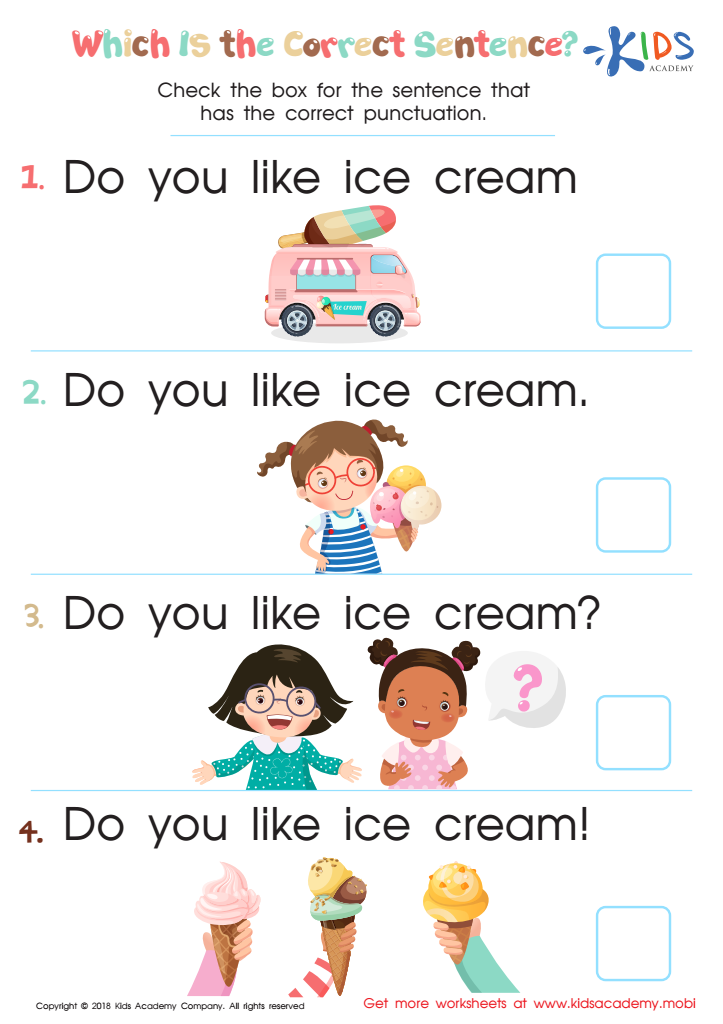

Which is the Correct Sentence? Worksheet
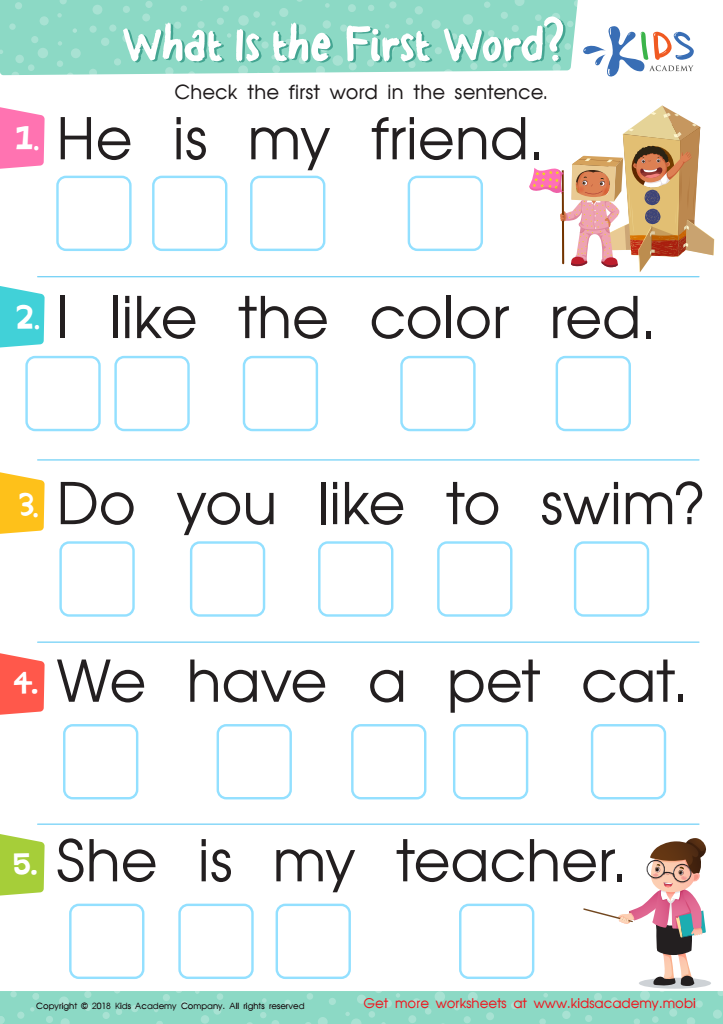

What is the First Word? Worksheet
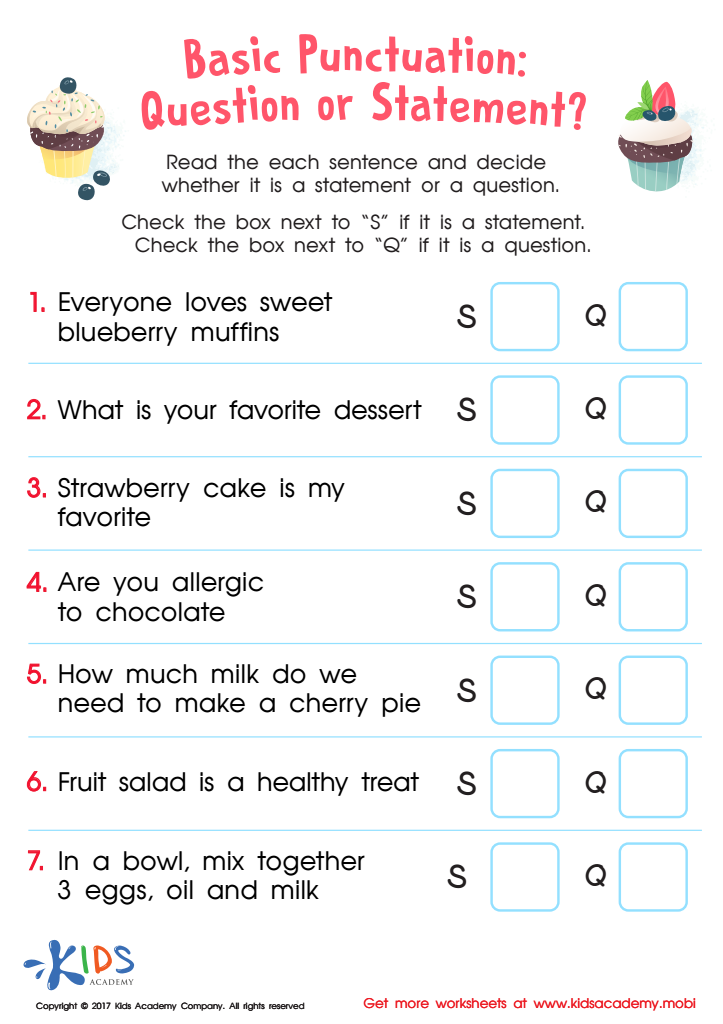

Basic Punctuation: Question or Statement Printable
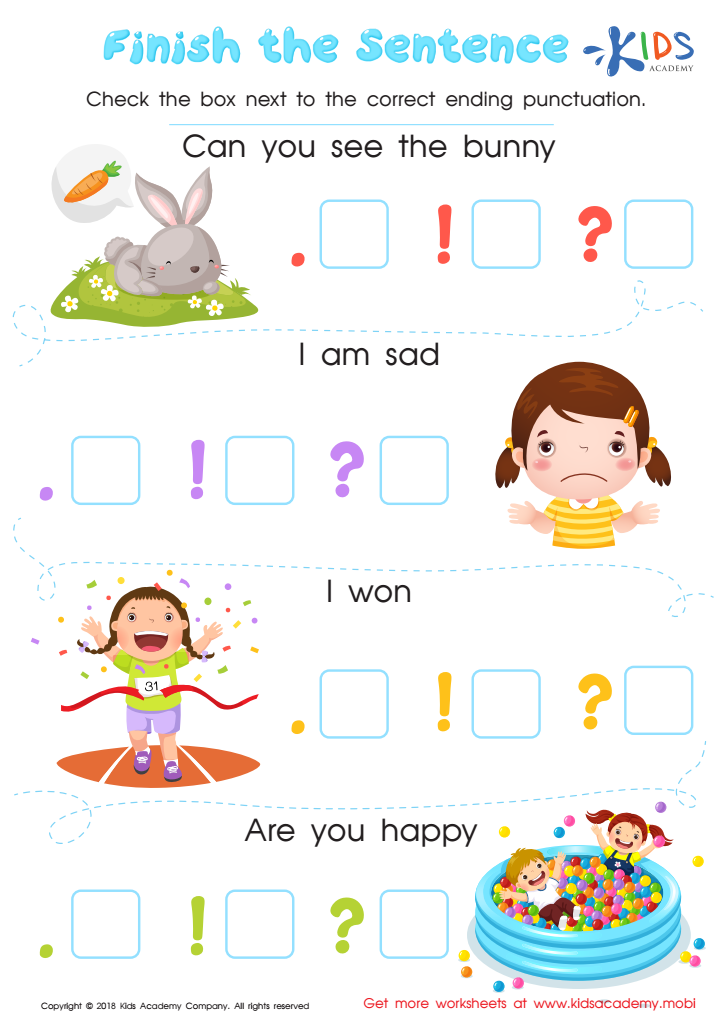

Finish the Sentence Worksheet
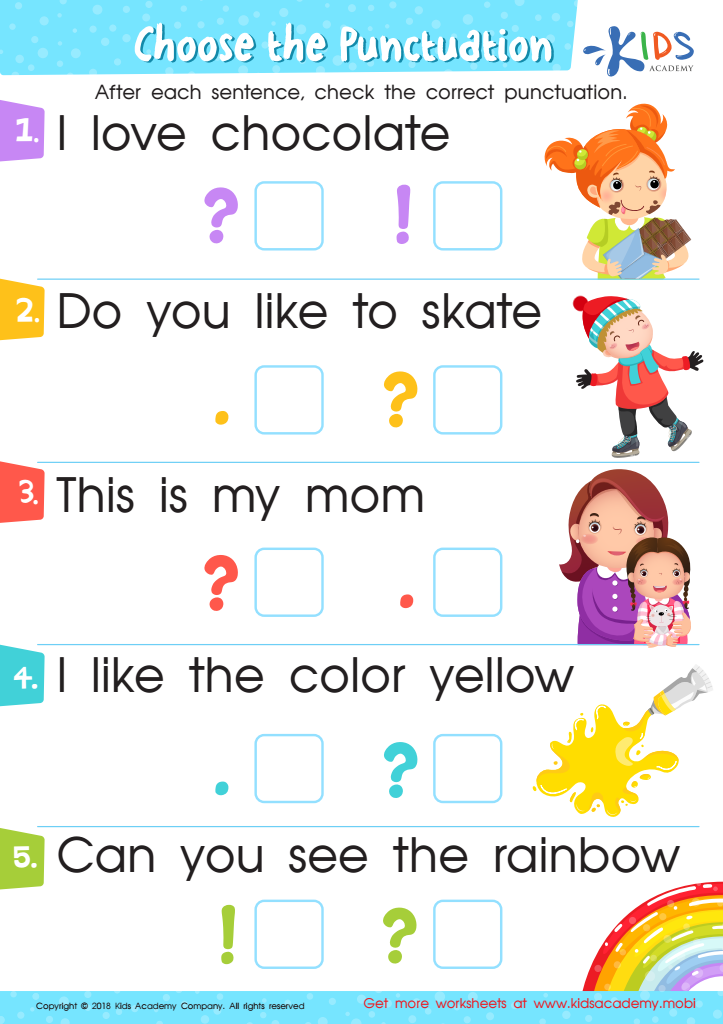

Choose the Punctuation: Assessment Worksheet
Normal punctuation is essential for children aged 3-7 as it lays the foundation for effective communication and literacy skills. At this age, children are beginning to recognize and understand spoken and written language. Introducing punctuation early helps them grasp the meaning of sentences, enhancing their language development.
For parents and teachers, caring about punctuation is crucial because it supports young learners in several ways. First, it aids in comprehension; punctuation marks like periods, commas, and question marks guide children in interpreting the tone and intent of a sentence. This understanding cultivates better listening and reading skills, fostering a love for books and storytelling.
Second, punctuation plays a significant role in children's writing. By learning when to use appropriate punctuation, children can express their thoughts more clearly, setting the stage for effective communication in the future. As they write simple stories or sentences, proper punctuation helps them organize ideas logically.
Lastly, reinforce to parents and teachers that using normal punctuation nurtures curiosity about language, encouraging kids to explore word usage and sentence structure. In essence, caring about punctuation during these formative years not only enhances literacy but also builds a strong foundation for future educational success.
 Assign to My Students
Assign to My Students




















